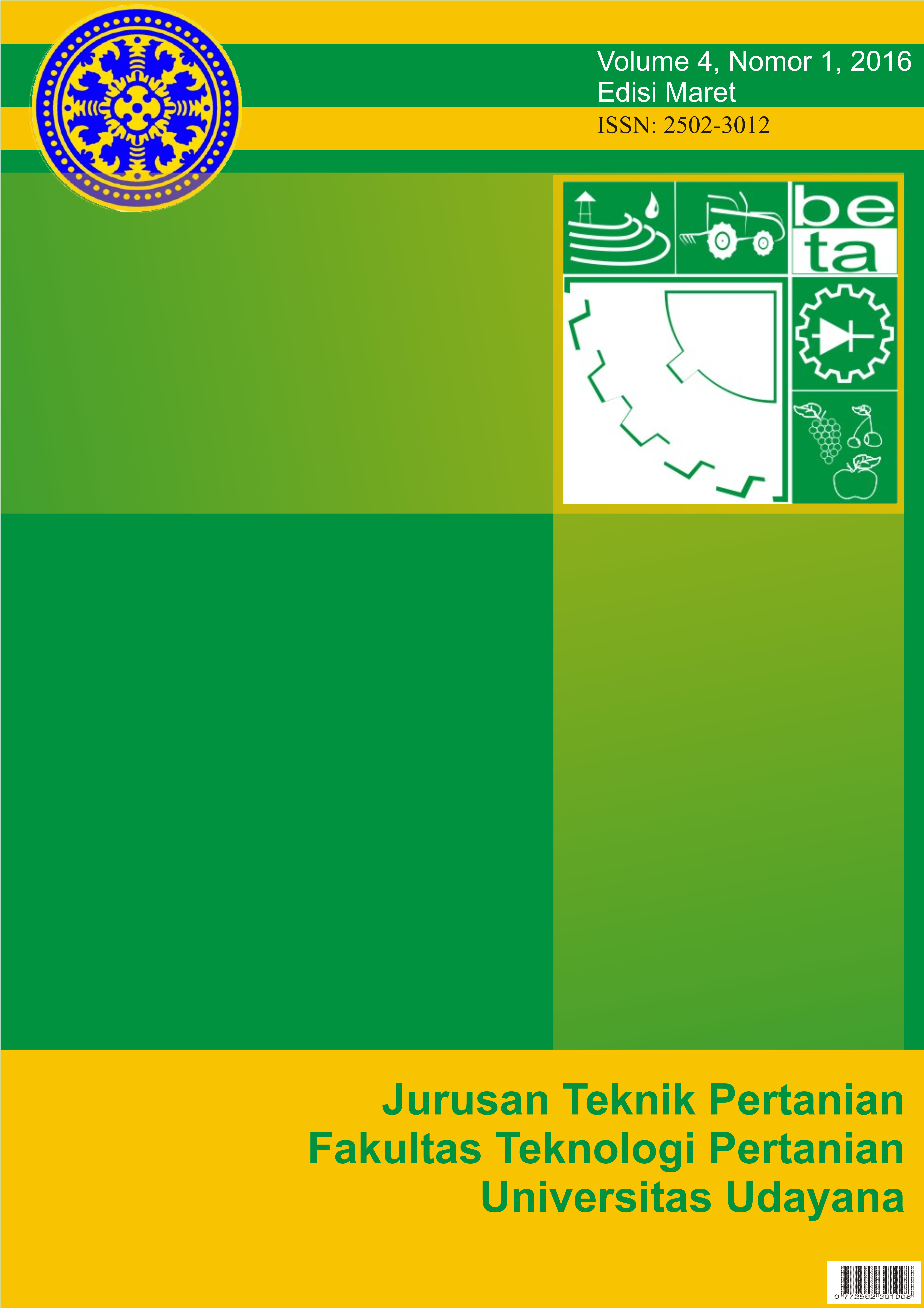Perancangan Sistem Irigasi Otomatis dengan Sensor Resistif Berbasis Kadar Air Tanah pada Tanaman Rukola (Eruca sativa)
Abstract
Rukola (Eruca sativa) is a horticultural plants originating from the Mediterranean with a high of vitamins such as A, B complex, C, and K. Rukola can be growed well at low ambient temperatures with soil moisture content between 20% - 40%. Therefore, irrigation control system is required to obtain at the appropriate moisture content for rukola plants. The objective of this research was to build an automatic irrigation system with the resistive sensor based on soil moisture, that can perform automatic irrigation accordance optimal water content in rukola cultivation. The control system in this research was created using the multiplexing control system with resistive AC stainless steel sensors. The sensors was read the resistive of soil moisture that calibrated into a percent (%) of water content and displayed on the display per second. The output of the pump is controlled by limits of water content that programmed by the microcontroller AVR AT Mega 8535. Calibration control system conducted at field capacity and permanent wilting point. Automatic irrigation control system was able to work well with the limits defined soil moisture is 20% lower limit and 39% upper limit. The first testing results of control system I have R2 0.8462 with RMSE values 0.02 and control system II have R2 0.8603 with RMSE value 0.02. The second test of control system I have R2 0.8896 with RMSE value 0.01 and control system II have R2 0.9121 with RMSE value 0.02. If R2 that exceeds the value of 0.7 and RMSE (Root Mean Square Error) ? 0.1, then the performance of the automatic irrigation control system is working accurately.
Downloads
References
Atmel Corps. 2006 . AVR AT Mega 8535 www.atmel.com/Images/doc2466.pdf. Diakses pada tanggal 22 Februari 2014
Hakim, A.F. 2011. Perancangan Sistem Informasi Pengukuran Konduktivitas Hidraulik Tidak Jenuh Tanah dengan Sensor Tensiometer dan Higrometer Digital. Jurusan Teknik Elektro. Fakultas Teknik. Universitas Jember.
Ezra Klein. 2008 "Arugula", The American Prospect. Amerika
Lal Rattan, Shukla Manoj K. 2004. Principle of Soil Physics. Marcel Dekker, Inc. New York.
Morris, Alan S., Measurement and Instrumentation Principles. 2001. Butterworth Heinemann. ISBN 0-7506-5081-8
Pasaribu, Ira S. 2013. Analisis Efisiensi Irigasi Tetes dan Kebutuhan Air Tanaman Semangka (Citrullus vulgaris S.) pada Tanah Ultisol. Jurnal Rekayasa Pangan dan Pertanian, Vol. 2 No. 1.
http://download.portalgaruda.org/article.php?article=111003&val=4140. Diakses tanggal 3 November 2015












 Jurnal BETA (Biosistem dan Teknik Pertanian)
Jurnal BETA (Biosistem dan Teknik Pertanian)


